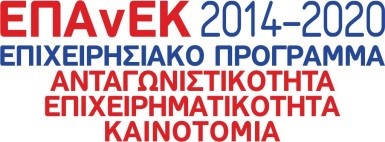GENERAL INFORMATION
Developing a Research and Innovation Strategy for Smart Specialization (RIS3) was among the conditionalities for securing funding for research and innovation actions under the 2014-2020 Partnership Agreement (PA). At national level, the GSRI was responsible for defining the 2014-2020 RIS3 which was approved by the Greek government in 2015. For the 2021-2027 Programming Period, the new national Smart Specialization Strategy is a comprehensive economic transformation agenda in conformity with the European Structural Funds Policy objective 1 (PO1): “A smarter Europe – innovative & smart economic transformation”. PO1 specific objectives include:
enhancing research and innovation capacities and the uptake of advanced technologies;
reaping the benefits of digitization for citizens, companies and governments;
enhancing growth & competitiveness of SMEs;
developing skills for smart specialization, industrial transition and entrepreneurship.
In order to formulate the new Strategy, it is imperative that all co-competent ministries and departments cooperate closely; to this end, in line with the Ministry of Development and Investments’ mandate, the General Secretariat for Research and Innovation cooperates with the General Secretariat for Industry, under the coordination of the General Secretariat of Public Investment and NSRF.
2. THE METHODOLOGY USED FOR DEVELOPING THE STRATEGY CONSISTS IN:
Identifying dynamic thematic areas or sectors expected to contribute to the country’s growth;
Specifying the thematic areas/sectors and identifying (together with the business sector and the research community) activities which, capitalizing on Research, Technology and Innovation, can facilitate structural change (e.g. modernization, differentiation and transition etc.) in enterprises of the sector concerned, and improve their competitiveness;
Highlighting the critical research areas/technologies (and appropriate policy tools) that should be included in the national RTDI strategy, taking into account the regional strategies developed by each Region.
At regional level, Greek regions and local communities are expected to identify, structure and make optimal use of their competitive advantages, support innovation and concentrate investments, in order to achieve the intended transformation of local economies through engagement of stakeholders in all stages.
This is the so-called entrepreunerial discovery process, a bottom-up approach focusing on enterprises identifying new, innovative activities and the relevant technology needs.

















